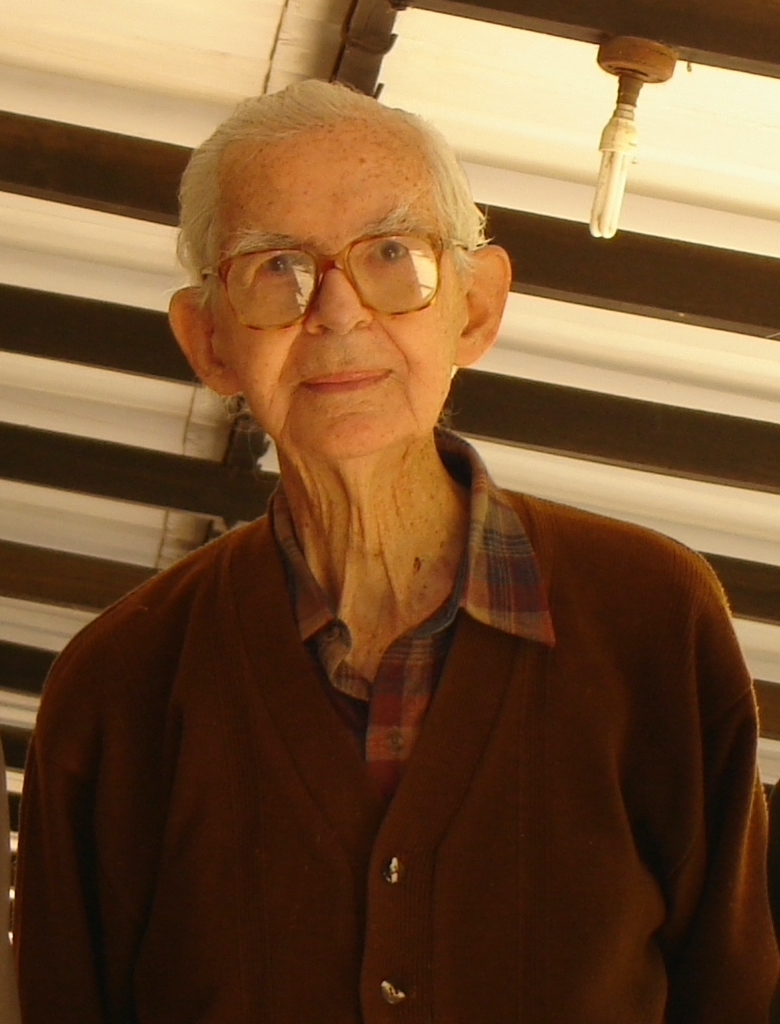An introduction to Father John Deeney S.J. by Dr. Michael Yorke.

As you can see Fr. Deeney was a gentle, delightful, hard-working and dedicated Jesuit missionary. He gave his life to his apostolate work among the Ho adivasi tribal people of what was, in the 1970s, south Bihar (nowadays Jharkhand).
Initially, as an anthropologist studying the Ho, I was prejudiced against American missionaries undermining the traditional culture and belief system of a minority people. However Valerie and I soon came to admire Deeney’s revisionist and syncretic understanding of the unity between Christianity and the Ho’s shamanic belief system.
Deeney then lived in the Chaibasa parish church compound, a few hundred yards from our house. We frequently visited him to discuss details of Ho cultural beliefs and enjoyed the comforts of hot tea and yeast risen bread. He also appointed a young Ho boy to teach me the Ho language.
Deeney’s life’s work was not just to bring Christian belief and love to the indigenous people, but also to foster a greater understanding of their way-of-life and creativity.
As Deeney once wrote, “The question of what word to use for “God” was discussed. The Hos use the term Singbonga for the Creator of all beings, a supreme Spirit. I had read up on the Ho understanding of Singbonga, especially in the Encyclopaedia Mundarica, and I felt that the Ho understanding of Singbonga was pure enough and could be used for “God”, so I was pleased when the group on their own, without any prompting by me, opted to use the word Singbonga for God. This was a giant step in inculturation. We were equivalently saying to the Hos that the Supreme Being, Creator of heaven and earth, whom you worship is the same God whom we worship. Of course for our Catholics we further developed the concept of a Trinitarian God.”
His work as a linguist shows his deep affinity with the Ho people.
He understood that the structure, syntax and way of conceptualising the world and communicating it to others gives us a deeper comprehension of their intellectual processes. For India the Ho are rare for speaking an Austroasiatic language closely related to the Khmer language of Cambodia. This gives them their own sense of identity living in a largely Indo-Aryan speaking country. Deeney felt this was vital to preserve, given that modern education was based on Hindi, an Indo-Aryan language. He therefore spent much of his energy analysing, promoting, preserving and writing about their indigenous language.
Father Deeney became an important linguist. While he saw his main work to translate the Bible and prayer books, with all their subtleties of meaning, into the Ho language, he also wrote an extensive series of Ho-English and English-Ho Vocabularies and Grammars. Most of them are now out of print. Therefore I am here making these invaluable documents available. See Downloads below.
On 21st February, 1991 Deeney was granted Indian Citizenship, a rare honour for a Christian missionary and a matter of great significance for him.
He died in January 2010 and was buried with full tribal rituals and honours in Lupungutu, near Chaibasa, Jharkhand, India, his homeland.